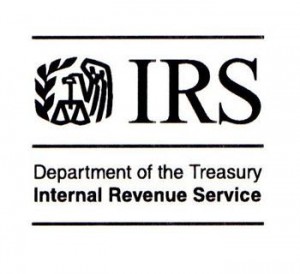 In recent years, the Internal Revenue Service (“IRS”) has been allowing plan sponsors to request determination letters on the qualified status of their retirement plans only during certain periods (cycles). For individually designed governmental plans, such a cycle (Cycle E) opened on February 1, 2015, and will remain open until January 31, 2016. Read more
In recent years, the Internal Revenue Service (“IRS”) has been allowing plan sponsors to request determination letters on the qualified status of their retirement plans only during certain periods (cycles). For individually designed governmental plans, such a cycle (Cycle E) opened on February 1, 2015, and will remain open until January 31, 2016. Read more
IRS opens determination letter process for governmental plans
Determination Letters for Governmental Plans Don’t Address Pick-Up Contributions and Excess Benefit Arrangements
(Posted on January 23, 2015 by Carol V. Calhoun)
 The IRS has issued a reminder that governmental plan sponsors who apply for IRS determination letters covering the qualified status of their plans can’t rely on a favorable letter for whether:
The IRS has issued a reminder that governmental plan sponsors who apply for IRS determination letters covering the qualified status of their plans can’t rely on a favorable letter for whether:
- contributions made to the plan are the employer’s “pick-up contributions” (i.e., pretax employee contributions under section 414(h)(2) of the Internal Revenue Code), or
- the plan has a qualified governmental excess benefit arrangement (i.e., a separate trust that provides only a participant’s annual benefit in excess of the limits under Internal Revenue Code section 415).
Chart comparing elective plans updated
(Posted on November 24, 2014 by Carol V. Calhoun)
 The chart comparing 457(b) plans, 403(b) plans, 401(k) plans, and deemed IRAs as vehicles for voluntary employee savings has now been updated to reflect recent developments, including new limits for 2015.
The chart comparing 457(b) plans, 403(b) plans, 401(k) plans, and deemed IRAs as vehicles for voluntary employee savings has now been updated to reflect recent developments, including new limits for 2015.
IRS Updates Guidance on Governmental Plan Determination Letters
(Posted on October 9, 2014 by Carol V. Calhoun)
 As of October 9, 2014, the Internal Revenue Service has updated its page on determination letters for governmental plans. The page contains information for any governmental plan considering obtaining an IRS determination letter, including the following: Read more
As of October 9, 2014, the Internal Revenue Service has updated its page on determination letters for governmental plans. The page contains information for any governmental plan considering obtaining an IRS determination letter, including the following: Read more
OPM Finalizes Long-Awaited Phased Retirement Regulations for Federal Government
(Posted on August 8, 2014 by Carol V. Calhoun)
 Highlights of the regulations, as issued by the Office of Personnel Management (OPM) today: Read more
Highlights of the regulations, as issued by the Office of Personnel Management (OPM) today: Read more
NPR Interview, “State Tax Laws ‘A Mess,’ For Same Sex-Couples and Employers.”
(Posted on March 19, 2014 by Carol V. Calhoun)
 Carol V. Calhoun was interviewed for a piece on National Public Radio’s “Here and Now” program called, “State Tax Laws ‘A Mess,’ For Same Sex-Couples and Employers,” which aired today. You can listen to the segment at this link, a summary and transcript can be found here, and the chart referenced in the story is available at this link..
Carol V. Calhoun was interviewed for a piece on National Public Radio’s “Here and Now” program called, “State Tax Laws ‘A Mess,’ For Same Sex-Couples and Employers,” which aired today. You can listen to the segment at this link, a summary and transcript can be found here, and the chart referenced in the story is available at this link..
New article: State Taxes and Married Same-Sex Couples
(Posted on March 7, 2014 by Carol V. Calhoun)
 Carol V. Calhoun‘s article, “State Taxes and Married Same-Sex Couples,” has now been published in Baltimore OUTloud. This article discusses the different approaches that each of the states has taken for state tax purposes, in the wake of the federal government’s decision to treat same-sex married couples are married for federal tax purposes.
Carol V. Calhoun‘s article, “State Taxes and Married Same-Sex Couples,” has now been published in Baltimore OUTloud. This article discusses the different approaches that each of the states has taken for state tax purposes, in the wake of the federal government’s decision to treat same-sex married couples are married for federal tax purposes.
Cafeteria Plans Need to Move Fast to Take Advantage of Year-End IRS Guidance
(Posted on December 16, 2013 by Carol V. Calhoun)
 On June 26, 2013, the Supreme Court issued the Windsor decision, striking down a provision in the federal Defense of Marriage Act which had precluded recognition of same-sex marriages. In September, the Internal Revenue Service (“IRS”) announced that same-sex couples legally married in a state that recognized such marriages would now be treated as married for purposes of federal taxation, regardless of whether their marriages were recognized by their state of residence. The IRS announcement was made retroactive, meaning that such marriages will be recognized back to their inception.
On June 26, 2013, the Supreme Court issued the Windsor decision, striking down a provision in the federal Defense of Marriage Act which had precluded recognition of same-sex marriages. In September, the Internal Revenue Service (“IRS”) announced that same-sex couples legally married in a state that recognized such marriages would now be treated as married for purposes of federal taxation, regardless of whether their marriages were recognized by their state of residence. The IRS announcement was made retroactive, meaning that such marriages will be recognized back to their inception.
The IRS has issued Notice 2014-1, which provides guidance on the application of the new rules to cafeteria plans. However, in many instances employers will need to move quickly to take advantage of relief granted.
Judge in Detroit Bankruptcy Case Denies Any Special Protections for Pensions
(Posted on December 5, 2013 by Carol V. Calhoun)
 Judge Steven W. Rhodes of the U.S. Bankruptcy Court for the Eastern District of Michigan had now issued an opinion stating that the bankruptcy proceedings for the City of Detroit can go forward. The opinion provided no special protections for as yet unfunded pension benefits (although benefits already in the pension funds were protected). The judge rejected a contention that Michigan constitutional provisions prohibiting impairment of pensions would provide protection to promised but unfunded benefits.
Judge Steven W. Rhodes of the U.S. Bankruptcy Court for the Eastern District of Michigan had now issued an opinion stating that the bankruptcy proceedings for the City of Detroit can go forward. The opinion provided no special protections for as yet unfunded pension benefits (although benefits already in the pension funds were protected). The judge rejected a contention that Michigan constitutional provisions prohibiting impairment of pensions would provide protection to promised but unfunded benefits.
“The accrued financial benefits of each pension plan and retirement system of the state and its political subdivisions shall be a contractual obligation thereof which shall not be diminished or impaired thereby.” [Article IX, Section 24, Michigan Constitution]
Businesses Denied State Income Tax Deductions for Fringe Benefits for Same-Sex Spouses
(Posted on December 4, 2013 by Carol V. Calhoun)

As discussed in the chart, “State Taxes and Married Same-Sex Couples,” most states that do not recognize same-sex marriage are requiring same-sex married couples to file their tax returns as single (or head of household, if they qualify for that status). However, Virginia has now gone further, denying certain Virginia businesses state income tax deductions for fringe benefits they provide to same-sex spouses. As discussed below, the language used is muddy, and the holding is probably considerably less broad than it appears. However, businesses in Virginia need to be aware of its potential effect on them. And to the extent that other states take the same route, businesses in states other than Virginia would also be affected.
